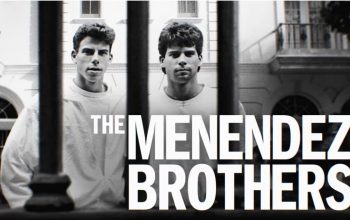Photo Credit: Emily Tung
The importance of moving from renaming to learning
Josephine Murphy, Opinion Editor
Disclaimer: The opinions expressed in this article are those of the author. They are not necessarily representative of the views of The Mike or its staff members.
After two years of deliberation and 700,000 dollars, Toronto City Council has finally spoken. Yonge–Dundas Square is to be renamed “Sankofa Square,” a decision that seventy-two percent of Torontonians are against.
The decision was prompted by an online petition signed by 14,000 individuals back in the summer of 2020. The petition advocated for the renaming of Dundas Street due to allegations that Henry Dundas, a Scottish lawyer and politician, was involved in prolonging the transatlantic slave trade.
In multiple ways, the renaming is problematic. Numerous historians argue it rests on misinformation, citing evidence that Dundas was an abolitionist. In 1778, Dundas represented Joseph Knight, an escaped enslaved person, in court, arguing that since there was no law supporting slavery in Scotland, Knight should be considered a free man. The courts ruled in favour of Knight, establishing a legal precedent against slavery in the nation.
Critics of Dundas neglect to highlight this event. Instead, they emphasize Dundas’ role in amending a resolution to end the slave trade. In 1792, William Wilberforce introduced a motion calling for the abolition of slavery. Dundas supported the motion but suggested it be altered to include the word “gradual.” With his amendment, the motion was passed in the House of Commons for the “gradual abolition of the Slave Trade.”
Those in favour of renaming Dundas base their argument on that one word: gradual. For them, the word seems sufficient to prove Henry Dundas was a despicable man who prevented immediate abolition. However, many historians have argued that the motion would not have passed without his alteration. It was a practical decision to appease those fighting to protect the status quo and give the British government more time to garner support from outsiders.
In a perfect world, Dundas’ actions wouldn’t have been necessary, but realistically, given the historical context, they probably were.
The problem with the anti-Dundas crowd is that it judges history from the standards of today instead of reconstructing the context in which historical events took place. Applying this approach would reveal moral shortcomings in almost every historical figure.
Thomas Jefferson, the principal author of the Declaration of Independence and one of America’s Founding Fathers, owned enslaved people; Sir John A. Macdonald, a key figure in Canadian confederation and Canada’s first Prime Minister was involved in implementing the residential school system; Shakespeare’s plays commonly portray women in subservient roles; and Aristotle believed in natural slavery —the idea that some individuals are naturally suited to be slaves. To erase these figures and ignore their enormous societal contributions would be ridiculous. We can recognize their great achievements while simultaneously acknowledging that they were products of their times.
The case against Dundas is made worse by the historical misconceptions it is based upon. At the very least, if we’re going to judge figures from centuries past through the lens of today’s moral standards, we have to recognize the irony embedded in our own judgments. Hollywood and the political landscape are riddled with scandals, allegations of corruption, and misuse of power. Justin Trudeau’s re-election, despite the documented blackface incidents, stands as a stark example. If we insist on applying stringent judgment to individuals who lived in vastly different times, it becomes contradictory not to hold those in the 21st century to the same rigorous standards. Maybe it’s time we put a pause on the trend of rampant renaming and, instead, concentrate on learning the lessons of history. At best, we might be able to avoid repeating its mistakes.




